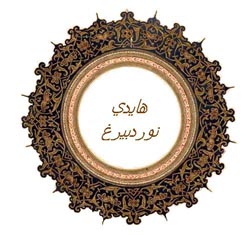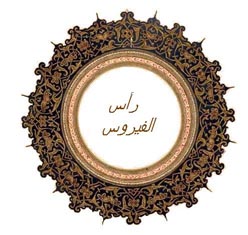VirusHead Blog Against Theocracy
Once again, it’s time for the annual Blog Against Theocracy blogswarm. Thanks to Jolly Roger for reminding me.

BAT logo by Tengrain of Mock, Paper, Scissors, who also points out:
The theme [of the blogswarm], like always, is the Separation of Church and State — we are for it. But the variations on the theme are many…This is not a bashing of religion – peeps can believe what they choose, however they choose — but it is a reminder that the Government should keep out of religion, and Religion should keep out of the government.
Last year, I highlighted my favorite bits of the blogswarm. I won’t be doing that this year, but I will make every effort to read every post.
So, what to say? Here is what I say:
The drive to “christian” theocracy is a profoundly destructive force. Participation in it leads to the corruption of one’s individual spiritual path by power-mad group-think.
I believe that such group-think strangles the intellect, encourages hysteria, and promotes cruelty. It creates dynamics that become the very opposite of kindness, humility, ethics, collaboration, and cooperation – the opposite of every virtue, and especially of the virtues we so desperately need in order to confront the actual problems facing the people of this country.
A will to power and domination can never lead to the fruits of the spirit, but can only undermine and finally destroy one of the most beautiful aspects of our country – the freedom of religion (with its corollary guarantees of freedom of expression and freedom from persecution).
There is also the matter of idolatry. Human individuals or groups that insist upon conformity to their own flavor of religious belief attempt to put themselves in the place of God and to claim God’s authority for their own agendas.
Beware of any claim that any group or person represents deity or is the voice of God on this earth. Beware of false prophets. Give unto Caesar only what it Caesar’s. Trust not in the traditions of men. And so on.
The rest of my post is simply to highlight some pertinent quotations:
“Good intentions will always be pleaded for any assumption of power. The Constitution was made to guard the people against the dangers of good intentions. There are men in all ages who mean to govern well, but they mean to govern. They promise to be good masters, but they mean to be masters.” – Daniel Webster
“Freedom is an indivisible word. If we want to enjoy it, and fight for it, we must be prepared to extend it to everyone, whether they are rich or poor, whether they agree with us or not, no matter what their race or the color of their skin.” – Wendell Wilkie
“To put it in a few words, the true malice of man appears only in the state and in the church, as institutions of gathering together, of recapitulation, of totalization.” – Paul Ricoeur
“The Bible tells us to be like God, and then on page after page it describes God as a mass murderer. This may be the single most important key to the political behavior of Western Civilization.” – Robert Anton Wilson
“Therefore, I am convinced that I am acting as the agent of our Creator. By fighting off the Jews, I am doing the Lord’s work.” – Adolf Hitler, Mein Kampf
“The people who have come into [our] institutions [today] are primarily termites. They are into destroying institutions that have been built by Christians, whether it is universities, governments, our own traditions, that we have…. The termites are in charge now, and that is not the way it ought to be, and the time has arrived for a godly fumigation.” – Pat Robertson
“Whoever wants to be a Christian should tear the eyes out of his reason.” – Martin Luther
“Patriotism? Your patriotism waves a flag with one hand and picks pockets with the other” – Ingrid Bergman to Cary Grant in Notorious
“Religion is against women’s rights and women’s freedom. In all societies women are oppressed by all religions.” – Taslima Nasrin
“The secular democratic state is the surest protector of religious and intellectual liberty ever crafted by human ingenuity. Nothing is more fallacious, or inimical to genuine religious liberty, than the seductive notion that the state should “favor” or “foster” religion. All history testifies that such practices inevitably result in favoring one religion over less powerful minorities and secular opinion. In the long run governmental favoritism vitiates the religious spirit itself. Where in the Western world is organized religion stronger than in the United States where the church is a take-your-choice affair? Where is it weaker than in Europe where sophisticated secularists joke that they have been “inoculated” for life against religion by compulsory religious indoctrination in state schools? Preserving the secular character of government and the public school is the surest guarantee that religion in America will remain free, vital, uncorrupted by political power, and independent of state manipulation.” – Edward L Ericson
“It would be good for religion if many books that seem useful were destroyed. When there were not so many books and not so many arguments and disputes, religion grew more quickly than it has since.” – Girolamo Savonarola (of Bonfire of the Vanities fame)
“Faith” is a fine invention, when gentlemen can see / But microscopes are prudent, in an emergency.” – Emily Dickinson
“Minds fettered by this doctrine no longer inquire concerning a proposition whether it is attested by sufficient evidence, but whether it accords with Scripture; they do not search for facts as such, but for facts that will bear out their doctrine. It is easy to see that this mental habit blunts not only the perception of truth, but the sense of truthfulness, and that the man whose faith drives him into fallacies treads close upon the precipice of falsehood…. So long as a belief in propositions is regarded as indispensable to salvation, the pursuit of truth as such is not possible.” – George Eliot
“Truth, in matters of religion, is simply the opinion that has survived.” – Oscar Wilde
“I do not feel obliged to believe that the same God who has endowed us with sense, reason, and intellect has intended us to forgo their use.” – Galileo Galilei
“I do occasionally envy the person who is religious naturally, without being brainwashed into it or suckered into it by all the organized hustles.” – Woody Allen
“The person with B.S. (note: “Belief Systems”) knows the “right answer” at all times and knows it immediately. This makes them very happy – and very annoying – because most of their “right answers” don’t make sense to the rest of us. Common sense and/or science require investigation and revision, etc. B.S. only requires a Rule Book (sacred scripture, Das Kapital, or whatever) and a good memory. People with “faith” represent mental health problem #1, because memorizing rule books cuts you off from sensory involvement with the existential world. It also produces the kind of intolerance that produces witch-hunts, Inquisitions, purges, Bushware 1.0, Bushware 2.0, etc. Belief Systems, “faith,” certitudes of all sorts, result from deliberately forgetting the fallibility of human brains, especially the brains of those who wrote your favorite rule book, and this leaders to a paradoxical rejection of the best functions of the brain – namely, its ability to rethink, revise, and correct itself.” – Robert Anton Wilson
“The man who has never wrestled with his early faith, the faith that he was brought up with and that yet is not truly his own — for no faith is our own that we have not arduously won — has missed not only a moral but an intellectual discipline. The absence of that discipline may mark a man for life and render all his work ineffective. He has missed a training in criticism, in analysis, in open-mindedness, in the resolutely impersonal treatment of personal problems, which no other training can compensate. He is, for the most part, condemned to live in a mental jungle where his arm will soon be too feeble to clear away the growths that enclose him, and his eyes too weak to find the light.” – Havelock Ellis
“Do not believe in anything simply because you have heard it. Do not believe in anything simply because it is spoken and rumored by many. Do not believe in anything simply because it is found written in your religious books. Do not believe in anything merely on the authority of your teachers and elders. Do not believe in traditions because they have been handed down for many generations. But after observation and analysis, when you find that anything agrees with reason and is conducive to the good and benefit of one and all, then accept it and live up to it.” – Siddartha Gautama, the Buddha
“We have just enough religion to make us hate, but not enough to make us love.” – Jonathan Swift

 About my last name:
About my last name:
